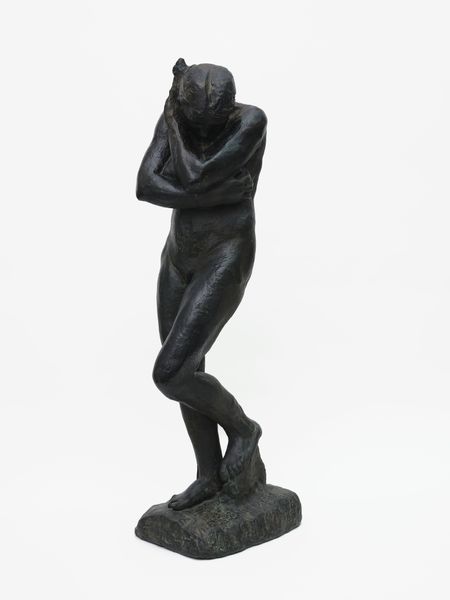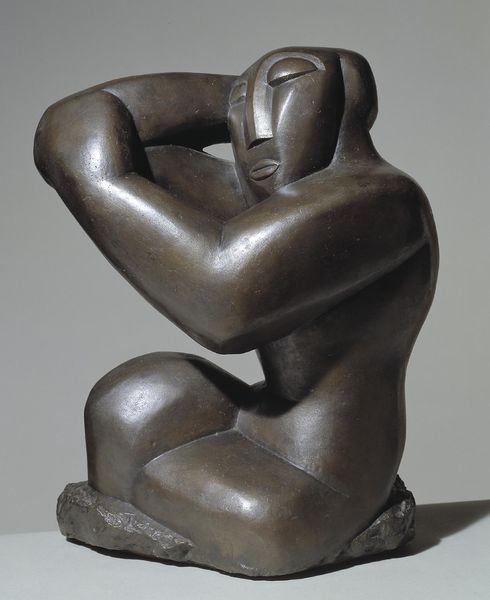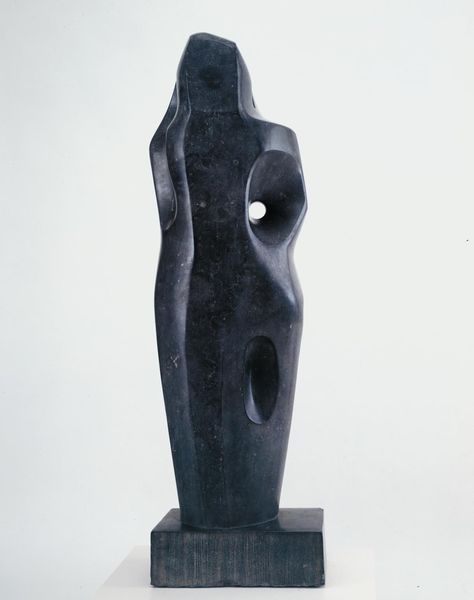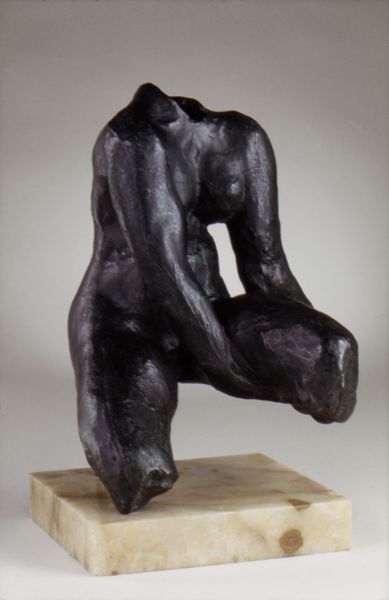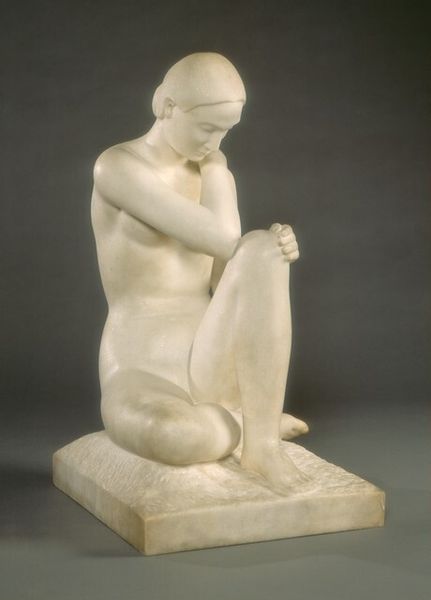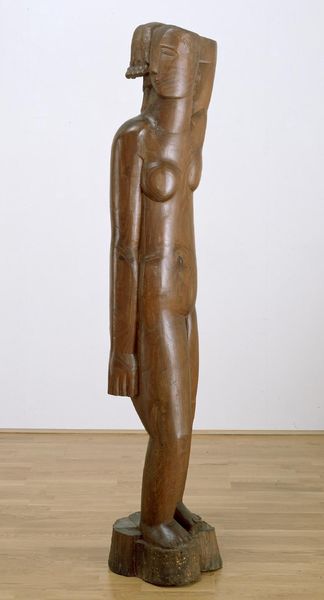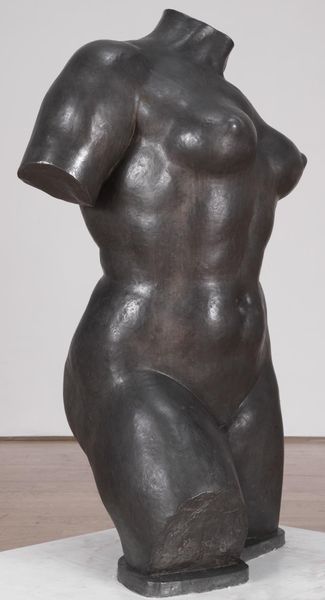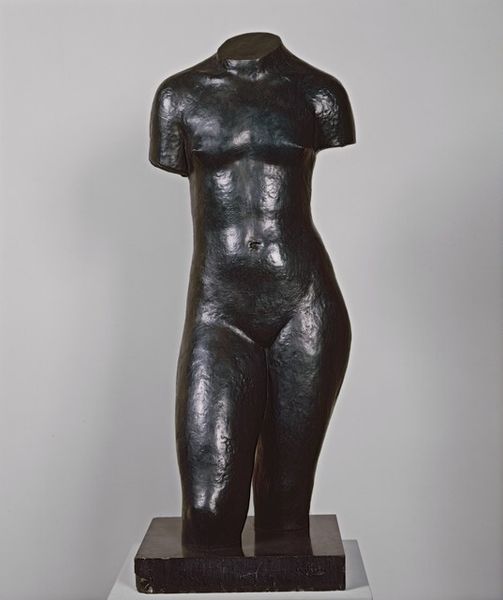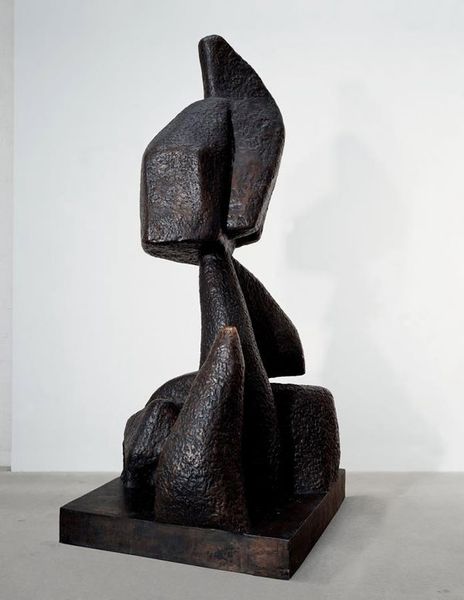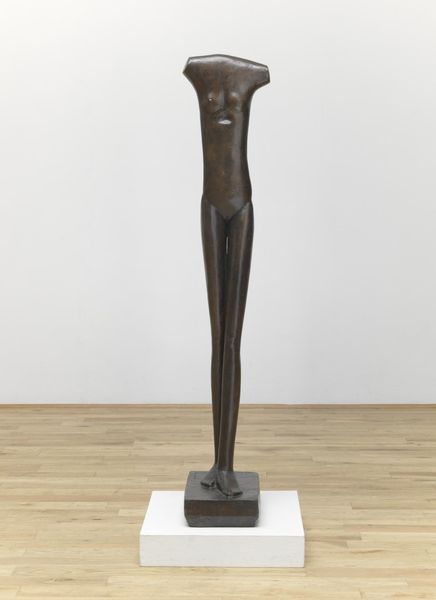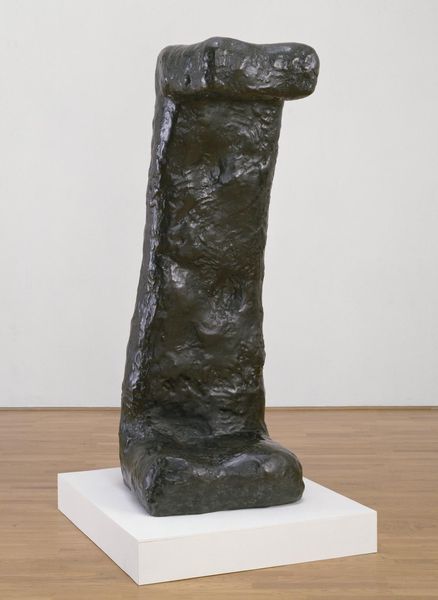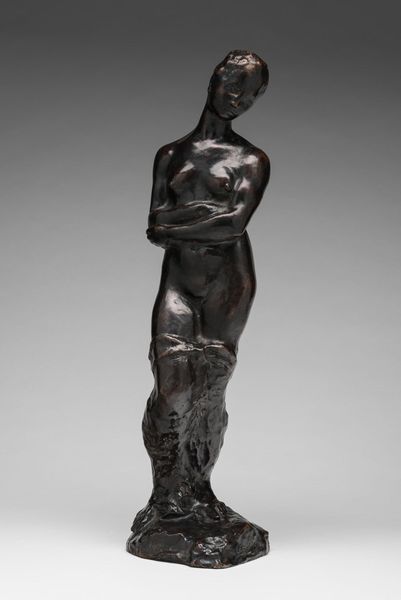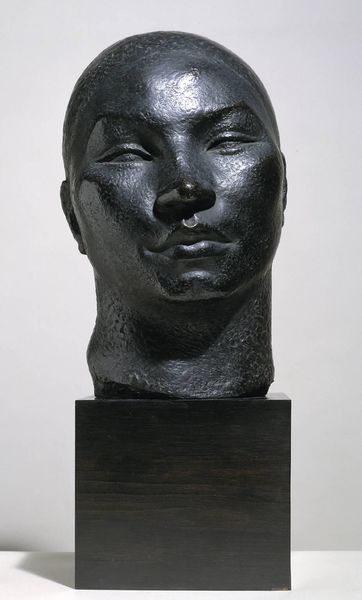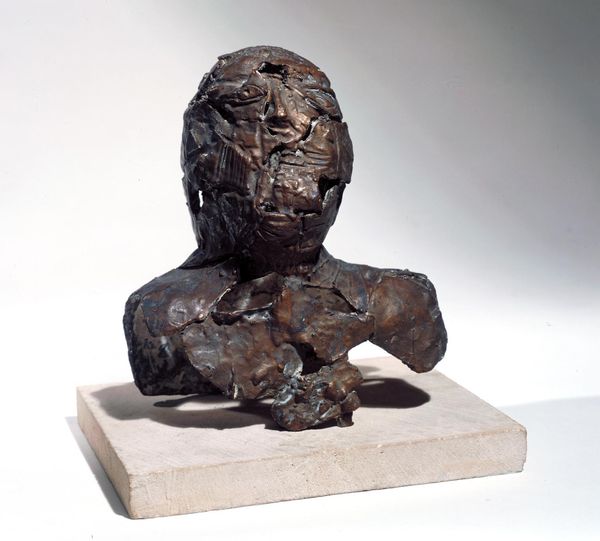
Dimensions: unconfirmed: 1117 x 560 x 500 mm, 130 kg (Gross 200kg)
Copyright: © The estate of John Skeaping | CC-BY-NC-ND 4.0 DEED, Photo: Tate
Curator: This is John Skeaping's sculpture, "Akua-Ba," residing here at the Tate. Skeaping, who lived from 1901 to 1980, invites us to ponder cultural representation in his work. Editor: Immediately, I'm struck by this figure's quiet, almost self-contained presence. It makes me think of introspection, or perhaps a silent plea. Curator: The figure's posture, knees drawn up to the chest, is a posture of vulnerability and protection, hinting at symbolic meanings connected to fertility and motherhood within Akan culture. Editor: I sense a dialogue between the Western artistic tradition and an adoption of non-Western aesthetics, which sparks a conversation about cultural appropriation and artistic inspiration. Curator: Precisely. The sculpture functions as an intersection where traditional symbolism meets modern artistic interpretation. Editor: I’m going to carry that feeling with me—this image, that posture, it's resonating. Curator: Indeed, a potent visual echo that bridges cultural divides.
Comments
Join the conversation
Join millions of artists and users on Artera today and experience the ultimate creative platform.
tate 10 months ago
⋮
The work refers to an Ashanti (or Asante) legend from Ghana. Akua had trouble conceiving and consulted a priest. He instructed her to care for a wooden doll as if it were a real child (‘ba’) and this helped her become pregnant. Akua’ba dolls have historically been used as fertility aids in the Ashanti region. The doll in this sculpture looks very different. This suggests that Skeaping, a white British artist, had limited knowledge of the legend’s cultural context. He may have connected it with his choice of wood, associating acacia trees with Africa. Skeaping drew on the Akua legend at a time when the Ashanti state was a British colony, annexed by force. Gallery label, April 2021
